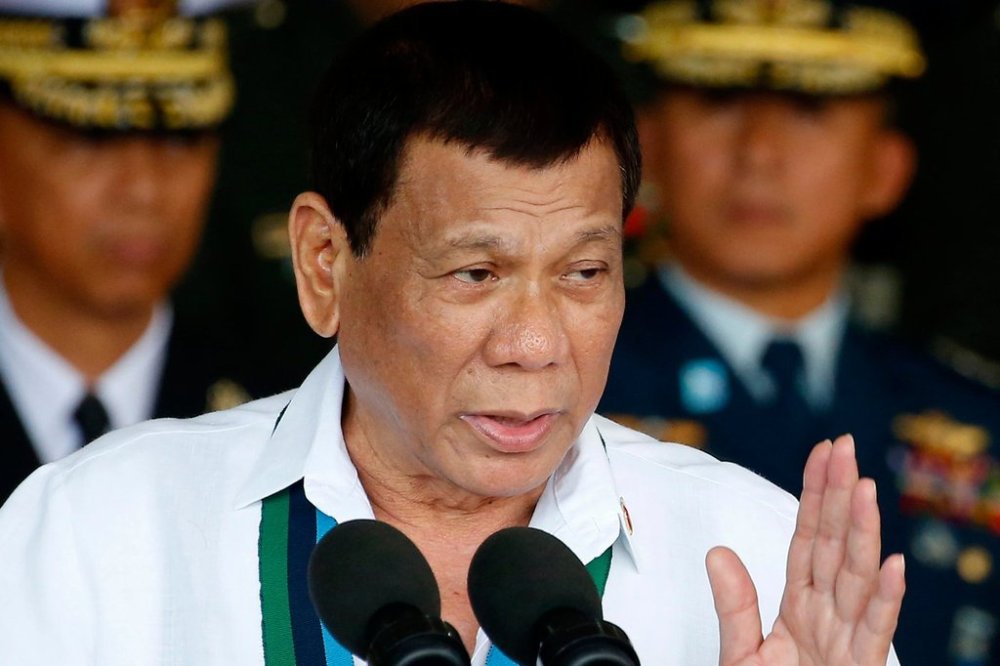ICC judges to rule on provisional release of former Philippine President Rodrigo Duterte
Advertisement
Read this article for free:
or
Already have an account? Log in here »
To continue reading, please subscribe:
Monthly Digital Subscription
$0 for the first 4 weeks*
- Enjoy unlimited reading on winnipegfreepress.com
- Read the E-Edition, our digital replica newspaper
- Access News Break, our award-winning app
- Play interactive puzzles
*No charge for 4 weeks then price increases to the regular rate of $19.00 plus GST every four weeks. Offer available to new and qualified returning subscribers only. Cancel any time.
Monthly Digital Subscription
$4.75/week*
- Enjoy unlimited reading on winnipegfreepress.com
- Read the E-Edition, our digital replica newspaper
- Access News Break, our award-winning app
- Play interactive puzzles
*Billed as $19 plus GST every four weeks. Cancel any time.
To continue reading, please subscribe:
Add Free Press access to your Brandon Sun subscription for only an additional
$1 for the first 4 weeks*
*Your next subscription payment will increase by $1.00 and you will be charged $16.99 plus GST for four weeks. After four weeks, your payment will increase to $23.99 plus GST every four weeks.
Read unlimited articles for free today:
or
Already have an account? Log in here »
THE HAGUE, Netherlands (AP) — Former Philippine President Rodrigo Duterte could be freed from detention at the International Criminal Court on Friday, as appeals judges are set to rule on a request to release him while proceedings against him are ongoing on charges of crimes against humanity.
Duterte’s legal team is appealing an October decision to keep the octogenarian in custody after judges found that he was likely to refuse to return for trial and could use his freedom to intimidate witnesses.
Prosecutors at the ICC say Duterte was involved in dozens of killings as part of his so-called war on drugs when in office, first as the mayor of a southern city and later as president. According to court filings, he instructed and authorized “violent acts including murder to be committed against alleged criminals, including alleged drug dealers and users.”

Estimates of the death toll during Duterte’s presidential term vary. National police put the figure at more than 6,000, while human rights groups claimed up to 30,000. Families of victims hailed Duterte’s arrest in March.
Duterte’s lawyers say he is “infirm and debilitated” and that it is “cruel” to keep him in custody during the trial. In September the court postponed a pretrial hearing until a full medical assessment could be made. According to defense filings, Duterte’s “cognitive faculties” have declined to a level that he cannot assist his lawyers.
If he is released, he will not return to the Philippines but instead be transferred to the custody of another member state while proceedings continue.
Last month, judges rejected a challenge to their jurisdiction in the case.
ICC prosecutors announced in February 2018 that they would open a preliminary investigation into the violence that took place during Duterte’s time in power. In a move that human rights activists say was aimed at escaping accountability, Duterte, who was still president, announced a month later that the Philippines would leave the court.
The charges against Duterte date from Nov. 1, 2011, when he was still mayor of the southern city of Davao, to March 16, 2019, when the withdrawal from the ICC took effect.
Countries can’t “abuse” their right to withdraw from the Rome Statute, the court’s founding document, “by shielding persons from justice in relation to alleged crimes that are already under consideration,” judges wrote in the October ruling. Duterte’s legal team has appealed this decision as well.
The Duterte administration moved to suspend the global court’s investigation before, arguing in late 2021 that Philippine authorities were already looking into the same allegations and the ICC — a court of last resort — therefore didn’t have jurisdiction.
Appeals judges at the ICC rejected those arguments and ruled in 2023 that the investigation could resume.

